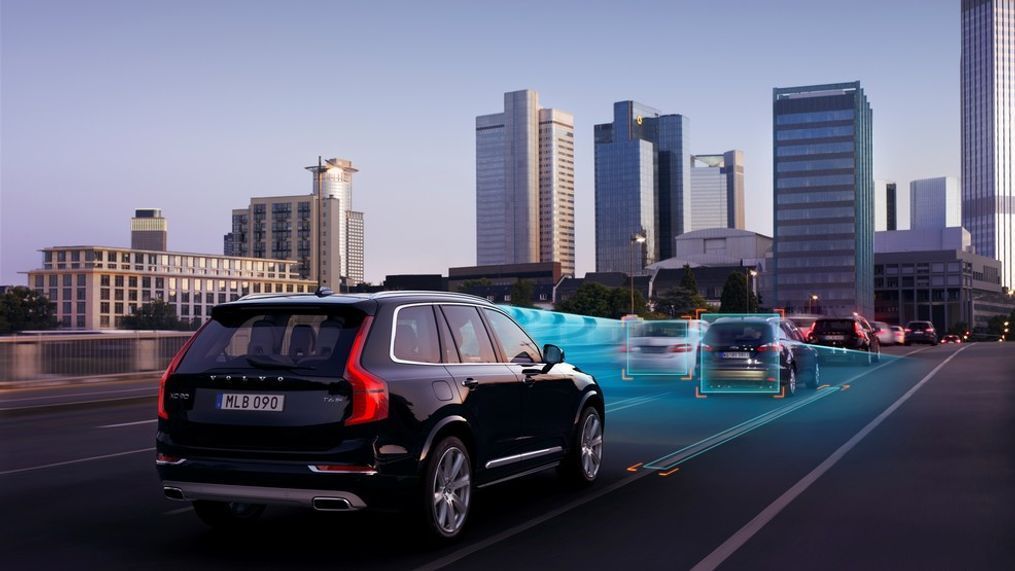Volvo study shows self-driving features will make cars more efficient

Self-driving cars are green cars, not just because they are usually electric.
One of the biggest reasons engineers began working on self-driving cars more than a dozen years ago was for their efficiency, reducing stop-and-go driving and eventually even stoplights. (Potential safety improvements are another big motivation.)
Now, a study by the National Renewable Energy Laboratory on behalf of Volvo quantifies that savings. Although fairly rudimentary in its approach, the study is the first that uses real-world driving data to show how much more efficient cars with driver-assistance features can be. The study showed a 5 to 7 percent drop in fuel consumption for the cars driving with adaptive cruise control compared with human drivers.
Cars in the study logged 18,500 trips around Gothenburg. The study, "An Automated Vehicle Fuel Economy Benefits Framework Using Real-World Travel and Traffic Data," was published in June in IEEE Intelligent Transportation Systems Magazine.
Researchers studied Volvos driven by employees and their families near the company's headquarters in Gothenburg, Sweden, and compared the fuel economy of cars using adaptive cruise control compared with those driven exclusively by human drivers.
Adaptive cruise control is one of the building blocks of self-driving cars, holding a steady speed on the open road, but slowing down gradually if a slower car appears ahead and maintaining a set following distance behind it.
The study and the parameters aren't perfect. Some of the benefit may come because cars driven with adaptive cruise control tend to travel more slowly as more, slower cars continue to appear in front of them. It also only tests this one aspect of self-driving cars, albeit a fundamental one. Future developments of self-driving cars, such as "platooning" and vehicle-to-vehicle and vehicle-to-infrastructure communications that can smooth traffic flow even further could have even bigger benefits.
“One obstacle to research like this is limited availability of real-world travel data from automated vehicles,” said Lei Zhu, a researcher in NREL’s Mobility, Behavior and Advanced Powertrains Group and lead author of the new paper. “The partnership with Volvo Cars provided a rare opportunity to work with actual vehicle operation and energy consumption data in real traffic.”
The researchers designed the study to provide a basis to simulate benefits from other types of advances in self-driving in the future.
Read more from Internet Brands Automotive:
